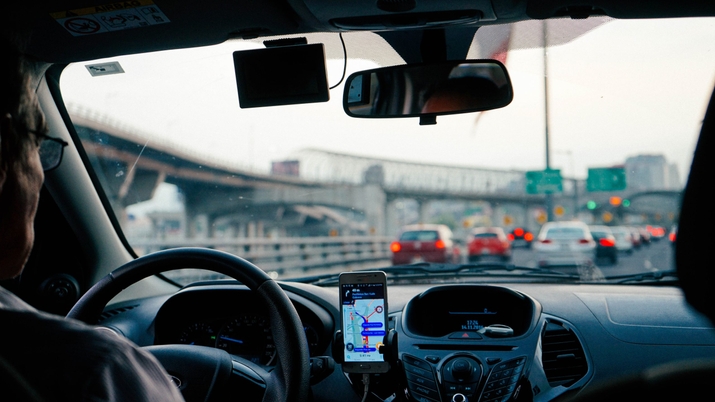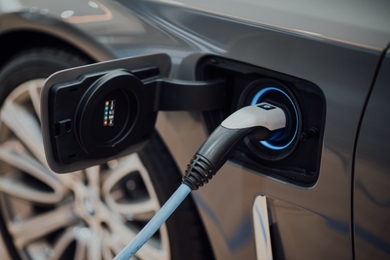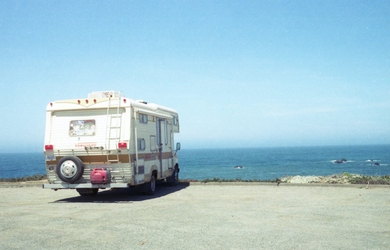What is Rideshare Insurance and Do I Need It? | Gabi.com

Driving for a rideshare service like Uber or Lyft can be a great way to generate income, even as a side hustle. But while using your vehicle to earn cash on your schedule is easy, there are also a few very important considerations to keep in mind. One of the most important is rideshare insurance.
As a rideshare driver, it’s likely that your everyday car insurance policy isn’t enough to fully protect you or your vehicle, even when off the clock. In order to do that, you’ll need to look into buying a rideshare policy — here’s a look at exactly what that entails.
What is Rideshare Insurance?
Using your personal car for ridesharing is one way to earn a few bucks on the weekend, or can even be a primary source of income. But regardless of how often you’re driving people around, you’ll need to carry insurance coverage that protects you, your vehicle, and everyone else on the road. This means buying a rideshare insurance policy.
Rideshare insurance is a type of policy intended for drivers who use their personal vehicles for on-demand rideshare services like Uber or Lyft (which are also called transportation network services, or TNCs). Your rideshare insurance can offer a combination of liability, personal injury, collision, uninsured/underinsured motorist, and even roadside assistance coverage, and can either be a form of supplemental coverage or a stand-alone personal policy.
There are four driving periods to consider, as far as most insurance companies are concerned. These are:
- Phase 1: When you have your rideshare app closed, and are driving for personal reasons
- Phase 2: When you have the app open but have not been matched to a fare
- Phase 3: After you have been matched with a rider and are en route to pick them up
- Phase 4: When a rider is in your car being transported
Uber and Lyft insurance covers you while your rideshare app is on and you’re waiting for a ride request. However, they provide minimal coverage. Depending on the insurer, rideshare coverage will kick in and provide you with full coverage protection during a mix of these phases. Some policies are only intended to cover phases 2 and 3, for example, while others cover 1-3 and protect you wherever there are gaps in the TNC policy’s coverage.
Why You Need Rideshare Insurance
Rideshare services like Uber typically offer insurance coverage to drivers, though the protections can vary. For example, Uber offers limited coverage to drivers and their vehicles anytime the Uber app is turned on, even if a passenger is not yet in the car. Other services, however, may only offer insurance coverage when a paying customer is inside the vehicle.
Before you even begin driving for a rideshare company or app-based delivery services (like Uber Eats), you likely already have personal auto insurance for your vehicle. So between that and the protection that companies like Uber and Lyft provide, you should be adequately protected in any situation… right?
Unfortunately, wrong. TNC insurance coverage is likely to provide inadequate protection, even when combined with a personal insurance policy. That’s because:
- Rideshare company policies, like Lyft insurance, may come with high deductibles, leaving you feeling the pinch after an accident.
- Some companies will only protect drivers when a passenger is in the car; if you’re in a car accident on the way to pick up a passenger, for example, you could be out of luck.
- Let’s say you caused an accident before accepting a ride request – what then? You may end up bearing the severe costs of medical expenses, and damages to your car involved. Not to mention property damage and bodily injury beyond your liability limits.
- Typically, personal auto insurance policies will not cover rideshare drivers without the purchase of a special policy or supplemental coverage. If your insurance company catches you rideshare driving, they may cancel your policy and/or deny claims — even if accidents occur off the clock when you’re driving for personal use.
First, you’ll want to see exactly what — if any — coverage your existing car insurance policy provides to you as a rideshare driver. You may find that your insurer won’t even offer a policy if you’re using the vehicle for rideshare purposes, in which case you need to start at square one. Others may just allow you to buy supplemental coverage.
What Does Rideshare Insurance Cover?
Different insurers and different policies will offer different rideshare insurance coverage. It just depends on what you already have and what you need.
For instance, some major insurance companies offer a stand-alone insurance product that blends personal coverage with rideshare protection. Whether you’re cruising around for pleasure or have a car full of Uber riders, you’re afforded some level of protection.
Some rideshare insurance policies will offer liability coverage, with or without protection for things like collision damage, medical payments, and underinsured/uninsured motorists. You may also be able to get a portion of your TNC policy’s deductible covered if you’re in an accident, too. And with some insurance companies, you can also enjoy benefits such as rental car reimbursement and roadside assistance.
Just be sure to read the fine print, as each insurance company and each policy will vary.
Which Insurance Companies Cover Uber Drivers?
Initially, very few insurance companies were willing to provide coverage for folks who used their personal vehicles to drive for popular services like Uber and Lyft.
As time has gone on, though, big insurers have begun offering policies. Some of these are hybrid policies, meant to cover TNC drivers 24/7 whether they are on the clock or not. Others are supplemental coverage options (in addition to a typical personal policy), which will kick in only when your Transportation Network Company app is open.
Which Insurance Providers offer Rideshare Coverage?
Insurance providers that offer rideshare insurance include:
- Progressive
- Allstate
- Mercury
- State Farm
- Geico
- Erie
- Farmers
- USAA
If you want to overview your insurance options, let Gabi help you! Sign up here to get assistance from our licensed insurance agents to make sure you have full coverage against possible accidents.
How Much Does Rideshare Insurance Cost?
If you’re on the market for rideshare insurance, don’t fret: it’s actually quite affordable! (Especially compared to the alternative: a commercial auto insurance policy.)
While there are many personal factors that go into calculating auto insurance premiums, rideshare coverage on average will add somewhere between 15 and 20 percent to your existing premiums. So if you’re paying $500 every six months for coverage now, you can expect rideshare insurance protection to add another $75 to $100 over the course of that same time period.
If purchasing a hybrid rideshare policy you’ll be blending your typical personal policy with rideshare coverage. You’ll see an increase in premiums, likely to be somewhere in that 10-20% range depending on personal variables.
Do I Need Rideshare Insurance?
If you’re an Uber or Lyft driver, you need rideshare protection of some kind. This is in addition to whatever protection the TNC already offers to you as a driver.
Many personal auto insurance policies will deny you coverage if you are ridesharing, even if a claim occurs while you’re off the clock. To avoid this awful surprise and fill in coverage gaps, you’ll need to purchase a hybrid rideshare policy or add supplemental coverage.
You can expect this to add somewhere between 10-20% to your annual premiums, though that number may vary. This is significantly less than a commercial policy would cost but provides a range of liability and collision coverage.
Can I Buy Just Rideshare Insurance?
Yes, rideshare insurance can be purchased both as an add-on to your personal car insurance or as a stand-alone insurance policy.
However, in some states, you may not be able to buy this type of insurance. As a result, you would have to buy a commercial insurance policy to get rideshare coverage and make sure you’re protected while working for ridesharing companies. Commercial policies tend to be more expensive and have higher liability limits.
Whether you are driving as a full-time gig or just want to make some extra money on the side, ridesharing is a popular option today. If you want to know how rideshare insurance works, go to Gabi and let us find you the best rideshare insurance quotes and personal car insurance policy. We’ll assist you before you purchase insurance coverage, so you can protect yourself and your vehicle for the best price possible.









